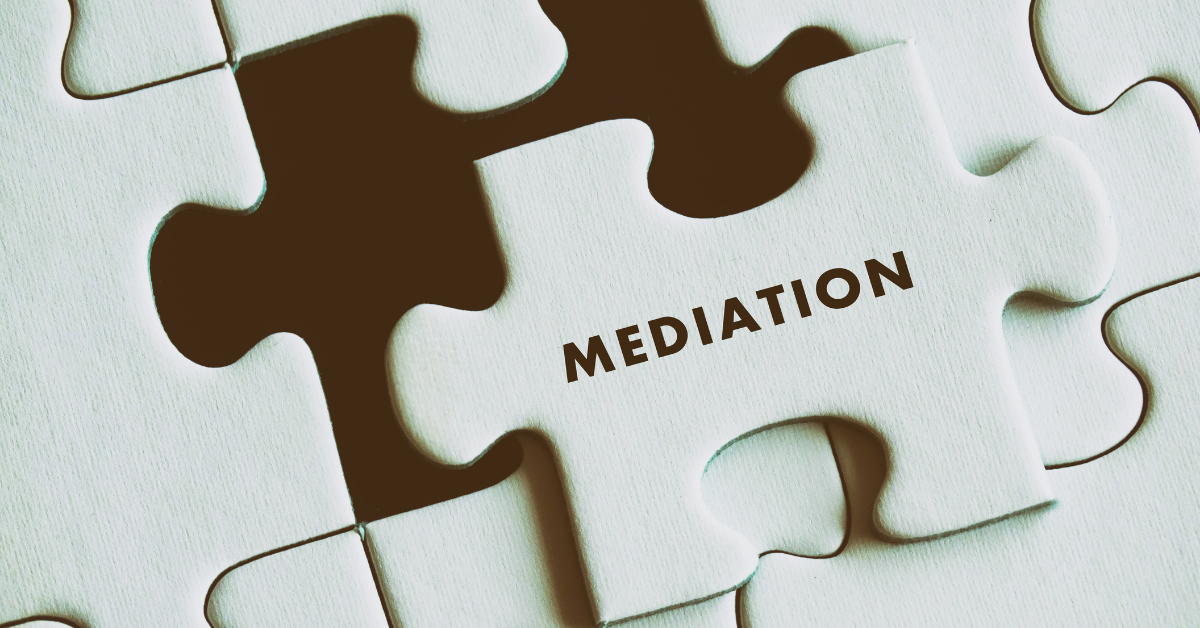In any instance of human inter-personal relations, either social contracts, commercial transactions etc., misunderstanding, disputes or conflicts are inevitable. The modes in which these conflicts gets resolved has seen a huge transformation over the years. This is when mediation comes into play.
In recent times, the conventional litigious and adversarial mode of dispute resolution is making way for its alternatives. Mediation is one paramount example of these alternative approaches to resolution of dispute.
What does mediation entail?
Mediation is a form of alternative dispute resolution (ADR) which entails a process where a neutral third-party helps in resolving a dispute between two or more parties. It is a method for resolution of dispute whereby an independent third-party called a mediator assists the parties in reaching a settlement which satisfactory to both parties.
In a session, a discussion of the dispute is done by the parties, in contrast to the formal presentation of witnesses and evidence as it is done in a trial or in an arbitral process. Mediation does not involve decision making by the neutral third party unlike arbitration which has a number of similarities to trial.
A mediation session is normally attended only by the mediator, the parties and their attorneys. It is a largely informal process and hence, very speedy. You can be done with your mediation in a day or less.
Who is a Mediator and choosing the right one.
The independent third party in a mediation process is referred to as a mediator. Mediators have the role of creating effective communications and helping parties find a middle ground.
Nearly all professionals competent in their various fields can serve as a mediator. In so far as such person has the relevant characteristics like tolerance, cool, calm and calculated, being affectionate, being anticipatory in thinking, trustworthiness etc. Hence, in choosing the right mediator, a successful trial lawyer might not be the best choice for you as they are known for being aggressive. This distinction is very important and you should put out an eye for it.
As a mediator, the most important thing is that you must be conversant with the parties’ needs before you attempt crafting a solution. Also, in reaching a consensus, you must assess the whole dispute and all its surrounding circumstances without any form of bias so as to ensure that the consensus is one acceptable to disputing parties.
How mediation works
It can be used in all forms of disputes ranging from contractual to social to commercial etc. The process of mediation is by default a voluntary process. However, at times it may be required by the court rules or by statutes that parties compulsorily participate in a mediation process. Mediation can also be obligated by a clause or another in the contract between the parties.
The mediation process involves a number of steps starting from the first meeting of the parties and their attorneys with the mediator till the decision stage.
At the end of a mediation process, the decision reached is called an agreement. The effect of this agreement is that of a legal substance as it is regarded as an enforceable contract.
The Take Away…
Mediation is a fast dispute resolution mechanism and an alternative to adversarial litigation. If your case is looking like it will end in mediation, you are advised to speak with an attorney with enough experience in this field. An attorney will afford you answers to specific questions about your case.
Check it our Mediation Monday segment in the resources tab of our website or here on YouTube!


